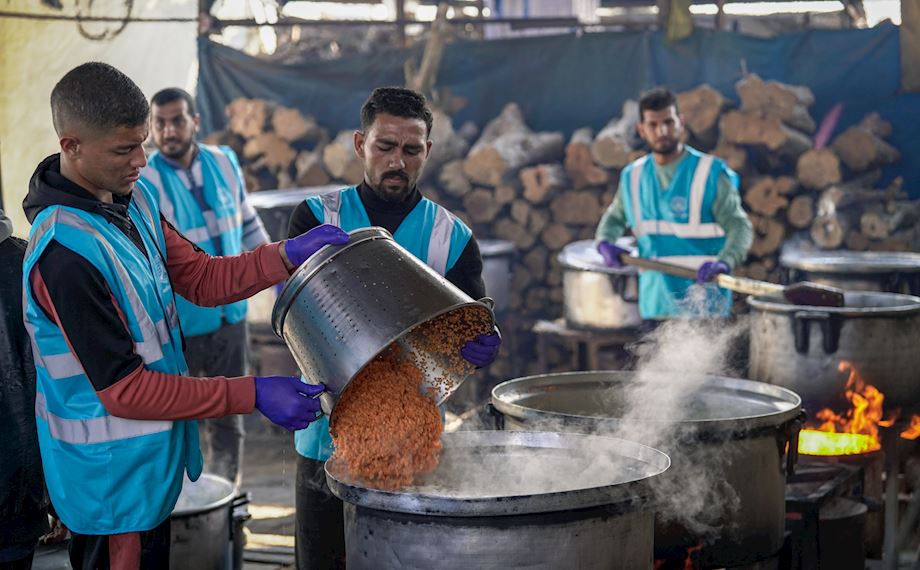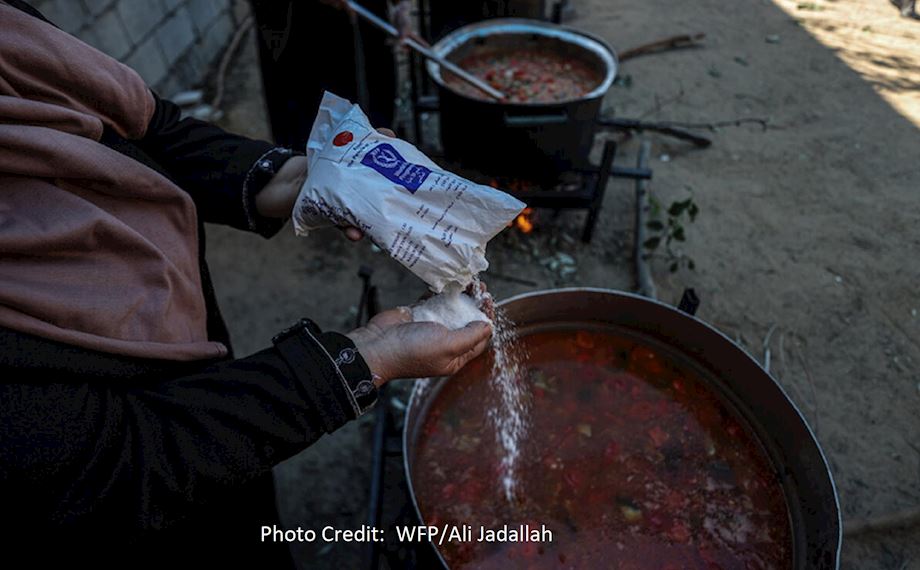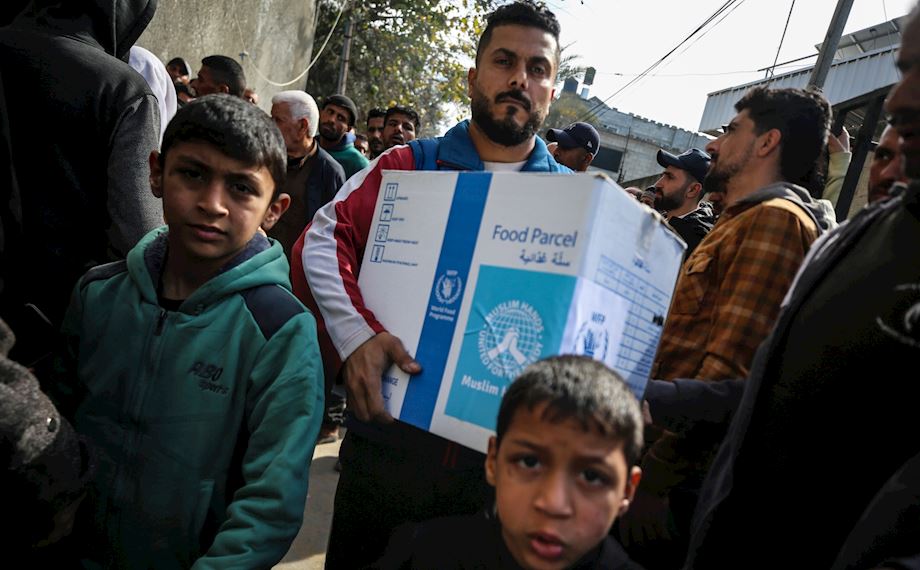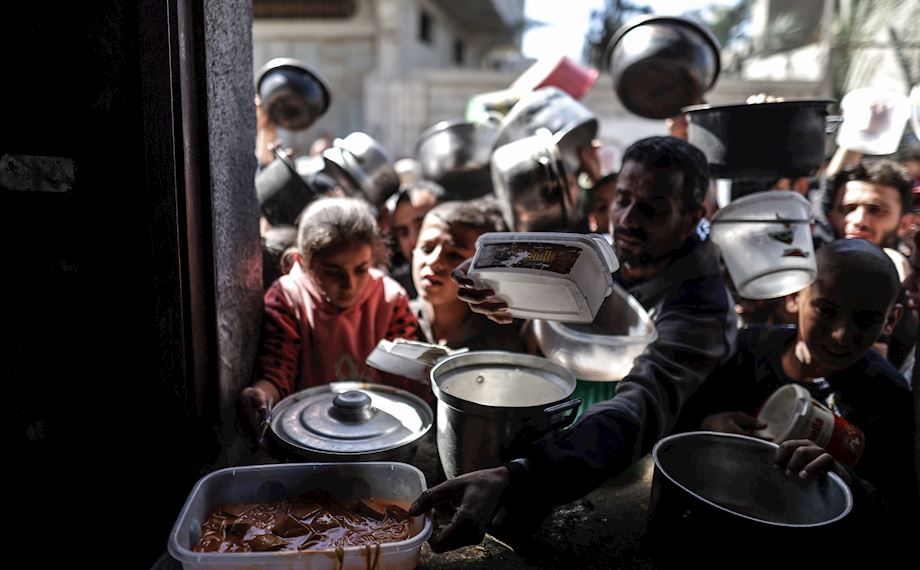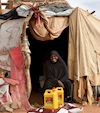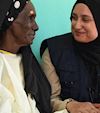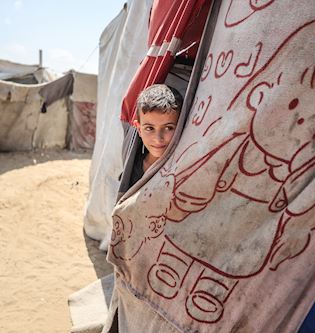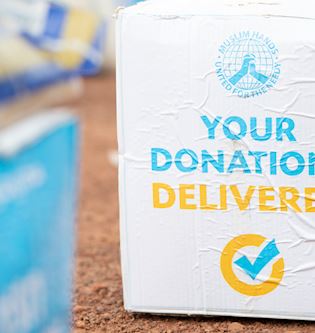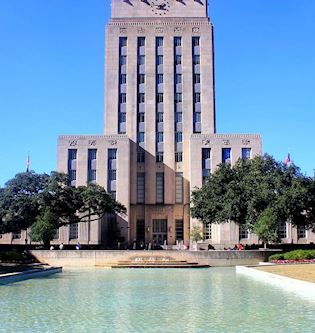The Psychological Impact on Children in Gaza: Addressing the Mental Health Crisis
The children in Gaza are facing a humanitarian crisis and severe hardships that go beyond the immediate physical dangers of living in an ongoing conflict zone. The strife, hunger, displacement, and uncertainty have had a profound psychological impact on the youngest and most vulnerable members of society. With zero percent of children receiving any education, the future is bleak for many. According to a report by Save The Children, 80% of children in Gaza exhibited emotional distress however, due to the recent conflict this number is likely to be far higher.
Mental Health Challenges
Children in these regions often live in constant fear of conflict, which results in widespread trauma and stress.The psychological impact caused by escalations, displacement, and the loss of loved ones deeply affects their mental well-being. Many children experience:
- Chronic anxiety: Continuous exposure to strife and insecurity leaves children feeling helpless, leading to long-term anxiety disorders.
- Post-traumatic stress disorder (PTSD): Many develop PTSD, marked by nightmares, flashbacks, and severe emotional distress triggered by memories of what their little minds have witnessed.
- Depression: The lack of safety and stability fosters hopelessness in children. The absence of schooling further deepens their sense of despair.
Loss of Education
Education is a fundamental right for all children, yet in Gaza, zero percent of children are receiving education. Schools are often damaged or inaccessible due to the ongoing conflict. The impact of conflict on children's education in Gaza is that they lose more than just the chance to learn—they lose structure, stability, and the opportunity for a better future.
Mental Health Impact of Health Crises on Children in Gaza
Many children in Gaza are suffering from multiple diseases caused by the humanitarian crisis. The children are most vulnerable to unsanitary living conditions and little access to food, clean water, and aid. Beyond the physical impairment of the diseases, children suffer mental health challenges in Gaza during the ongoing conflict.
The first case in 25 years of Polio has been reported in Gaza. Polio causes severe pain, muscle atrophy, and paralysis. The strife and unlivable conditions in Gaza are unimaginable and unfathomable for a child to grasp, let alone overcome.
Social Isolation and Displacement
Many children in Gaza experience displacement, which uproots them from their homes and communities. The psychological impact of instability disrupts their social lives. It isolates them from peers, making it difficult for them to form the friendships and support networks that are crucial for healthy mental development. This isolation leads to:
- Difficulty in trust-building: Constant upheaval makes it challenging for children to trust others, affecting their ability to form relationships.
- Withdrawal: Many children become withdrawn as they struggle to process the overwhelming emotions caused by their circumstances.
Long-Term Effects on Development
The psychological impact of trauma, loss of education, and displacement create long-term developmental challenges for children in Gaza. The lack of emotional and educational support often results in:
- Cognitive delays: The absence of proper schooling and the stress of living in a conflict zone can impair cognitive development, making it harder for children to learn and retain information.
- Behavioral issues: Many children exhibit behavioral problems such as aggression or withdrawal as they struggle to cope with their emotional turmoil.
Supporting Mental Health
The devastating effects of conflict in Gaza extend far beyond the physical. The psychological impact on children is severe and long-lasting, affecting their mental health, emotional development, and prospects. Ensuring they receive psychological support, and educational access is crucial for their recovery and well-being.
By focusing on these issues, we can bring awareness to the urgent need for action to support the children in Gaza.
Urgent Aid on the Ground: Muslim Hands USA
In collaboration with the World Food Program (WFP), Muslim Hands USA are putting forth great effort to deliver much-needed aid in Palestine. The assistance includes giving hot meals and essential food packs to internally displaced people (IDPs) who have fled from Rafah to central Gaza.
What is Muslim Hands Doing
Muslim Hands USA is actively delivering critical assistance to Palestine’s most vulnerable communities in partnership with the World Food Program (WFP). Through this partnership, they have provided thousands of hot meals and food parcels to families in need.
They have raised $30,000 to assist thousands of displaced families fighting to survive the crisis, thanks to the generosity of donors. By reaching over thousands of people in Gaza and the West Bank, their efforts ensure that vital aid reaches the people who need it most.
How You Can Help
Although the situation in Gaza is dire, we can still make a difference if you help. On the ground, the Gaza Emergency Relief Fund is delivering life-saving assistance.
You can provide hot cooked meals to those suffering in Gaza. Each meal contains essential nutrients, including protein, carbohydrates, and vegetables, to sustain families during this crisis. Your donations supports local kitchens delivering meals to high-risk areas like Gaza cities such as Deir al Balah.
Thanks to your donations, over 88,000 hot meals and food packs have already been delivered, but much more is still required.
We have partnered with the World Food Program to deliver food parcels. Each food parcel weighs around 90 lbs and contains canned beans, chickpeas, rice, lentils, vegetable oil, iodized salt, and date bars. The parcels are designed to meet the needs of a family of 5 and is enough to sustain a family of five for 30 days. The 90 lb parcel is split into two 45 lb deliveries, provided every 15 days (about 2 weeks.
Donate to the Gaza Emergency Appeal today to assist in giving children and families needing food and supplies that could save their lives: every donation matters.





